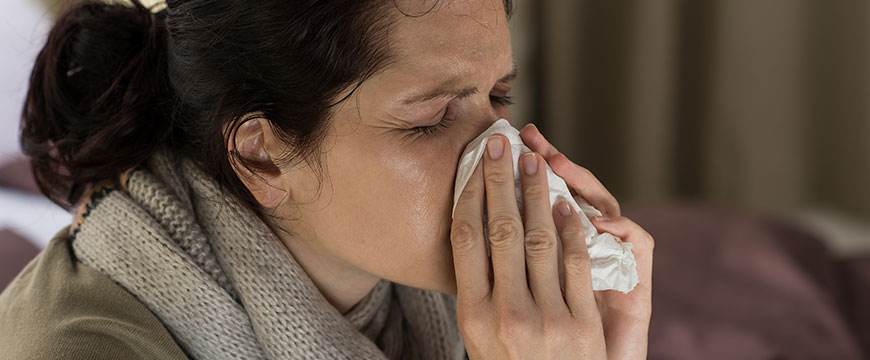When winter begins it marks the end of seasonal allergies that are caused by pollen. However, that also signals the beginning of winter allergies. There are several allergens that may be found indoors that will cause allergies. It’s imperative to ensure that your indoors is sparkling clean through the winter to keep the allergens away from your home. If you suffer from indoor allergies it may be wise to visit the allergist Manassas before winter begins for preventive medication and advise on the best home remedies. In this article, we give tips to ease winter allergies.
Main Causes of Winter Allergies
When the temperatures begin dropping you will be forced to spend more time indoors. You will need to keep the house warm by shutting the windows and lighting a fire. That could result in allergens that trigger your allergies. Below are some of the allergens that cause winter allergies
- Dust Mites
The bugs will be found in mattresses and beddings. Their droppings and remains cause an allergic reaction.
- Mold
Mold results when the house is damp and humid. Areas such as bathrooms and basements are prone to mold. The mold spores trigger an allergic reaction
- Animals
When the temperatures drop most people bring their pets indoors. Animal dander, saliva, and urine may cause allergies.
Symptoms of Winter Allergies
- Coughing and sneezing
- Dark circles around the eyes
- Runny nose and watery eyes
It’s important to visit the allergy clinic so that the allergy doctor can tell whether you are suffering from an allergy, flu or a cold. Allergies will linger for weeks while flu will reduce with time. The allergy physician will carry out an allergy test to determine the kind of allergy you are suffering from and then give you medication. It’s also best to consult the allergy doctor on how to minimize the allergies.
Treatment for winter allergies will include the following
- Antihistamines
- Decongestants
- Immunotherapy
It’s best to visit the allergy clinic for an allergy test before taking any medication. An allergy test will determine the exact cause of the allergies and that way you will know which allergen is affecting you and how to avoid it
Steps to Follow to Minimize Allergen in the Home
Keep the humidity in your House Low
Keep the humidity in the house below 50percent. Dust mites thrive in humid areas and you should ensure that the humidity of your home is below 50 percent. Invest in a dehumidifier to keep your humidity below 50%.
Remove wall to wall carpets
Carpets harbor dust mites and it’s best to remove them. Animal dander and mold will also hide in the carpets. Your house may become damp because of the carpet and that will encourage mold and dust mites. Remove the carpets and rugs and that will reduce the chances of the allergen.
Keep Pets out of the house
If you have a pet reduce contact with the pet. Make sure the pet is clean and have an area far from the living and bedroom where the pet can stay. Bathe the pet as often as possible and that will minimize dander. Have a change of clothes if you play with a pet.
Clean your beddings in hot water
Soak the bedding in hot water at least once a week to help reduce dust mites. Make sure that pillows and mattress have covers that allow dust mites to pass through. Don’t put pillows and comforters on the floor because that will attract more dust mites.
Clean the floor of your house regularly
Mop the floor regularly to ensure its clean. Make sure that your floor is dry and not damp. Keep your bathroom and kitchen dry. Ensure there is good insulation to help reduce mold.
If you Suffer from allergies get help in cleaning
If you are the one suffering from allergies seek help in vacuum cleaning. While the house is being cleaned leave the house to avoid coming contact with the allergens.
Visit the allergy clinic and get a diagnosis. That way you will be able to control the allergen that is affecting you. Consult the allergy specialist on the home remedies you should use to control the symptoms of the allergies. If you suffer from severe winter allergies make sure you see the allergy doctor before the season begins.
